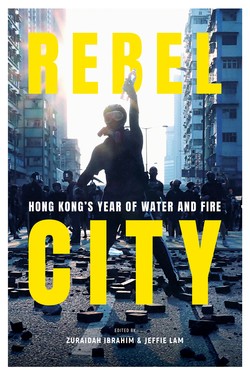Читать книгу Rebel City - South China Morning Post Team - Страница 34
На сайте Литреса книга снята с продажи.
Punished at the polls
ОглавлениеNobody foresaw the debacle to come for the pro-establishment camp, as protests against city leader Carrie Lam Cheng Yuet-ngor’s extradition bill snowballed into a wider anti-government movement through much of 2019. In the district council elections on November 24, proestablishment candidates were trounced, winning only 60 out of 452 seats.
Sweeping to a stunning victory, the pan-democrat bloc won 392 seats and seized control of 17 out of 18 councils. As for the FTU, only five of its 62 candidates won, with three of its four Legco members failing to retain their district council seats. (District councilors are eligible to run as Legco members and vice-versa.)
In a postmortem of their pathetic performance, some in the camp conceded afterward that they had failed to read the signs early enough, and did not realize that the extradition bill controversy could end up hurting them so deeply. Most in the camp actually had seen nothing wrong with the bill rolled out by the government to allow the case-by-case extradition of fugitives to jurisdictions with which Hong Kong had no exchange arrangement, including mainland China. When they met residents, they sensed that most were indifferent to the bill.
“They thought it related only to a tiny group of fugitives and had nothing to do with them,” said Tam Yiu-chung, former chairman of the Democratic Alliance for the Betterment and Progress of Hong Kong (DAB), the largest pro-establishment party. Only 21 of the DAB’s 179 candidates won in November, a massive rout for a party which had 119 district council seats before the polls.
Regina Ip Lau Suk-yee, chairwoman of the pro-government New People’s Party and an Executive Council member, said she rarely came across residents who were unhappy about the extradition bill. It was “something too remote” for most people, she said. Her party fielded 28 candidates in the district council elections, but all lost.
In retrospect, Ip and Tam agreed, the tide turned after a group of Hong Kong pan-democrats, led by former chief secretary Anson Chan Fang On-sang, went to the United States in March 2019. They highlighted concerns that the extradition bill could lead to fugitives being sent from Hong Kong to mainland China, and lobbied support from top US officials and members of Congress. That proved a turning point for Beijing as well. A domestic Hong Kong issue now had become a potential new front in the geopolitical rivalry between the US and China, said Tam, Hong Kong’s sole representative on the National People’s Congress Standing Committee, the nation’s top legislative body.
The following month, Beijing’s liaison office in Hong Kong invited a group of government supporters to set up an alliance to defend the extradition bill. The group then opened street booths across Hong Kong and collected hundreds of thousands of signatures from the public supporting the proposal to change the law. That seemed to be another sign that there was support on the ground for the bill.
The FTU’s Ng, deputy convenor of the alliance, admitted that his labor group misread ground sentiment. “We supported the government’s decision to push the bill because we agreed there was a need to plug the legal loophole in the existing law,” he said. “Our judgment was based on whether the move was in line with justice, not whether it could have a negative political impact.”
The pro-establishment camp remained firmly behind the bill even as its progress through Legco was delayed by pan-democrats. After the chaos and brawling in the legislature in May as members from rival sides fought for control of the bills committee which would scrutinize the legislation, the pro-establishment side supported fast-tracking the bill and bypassing the committee. City leader Lam was determined even then to press ahead with the process to have the bill passed in Legco, and the camp supported her.
What followed, however, were massive shows of opposition to the bill and the government in June, including the first violent clash between protesters and police on the 12th of that month. Three days later, Lam announced that the bill would be suspended but it was not until September that the legislation was formally withdrawn. By then, the anti-bill protests had grown into a wider anti-government movement.
